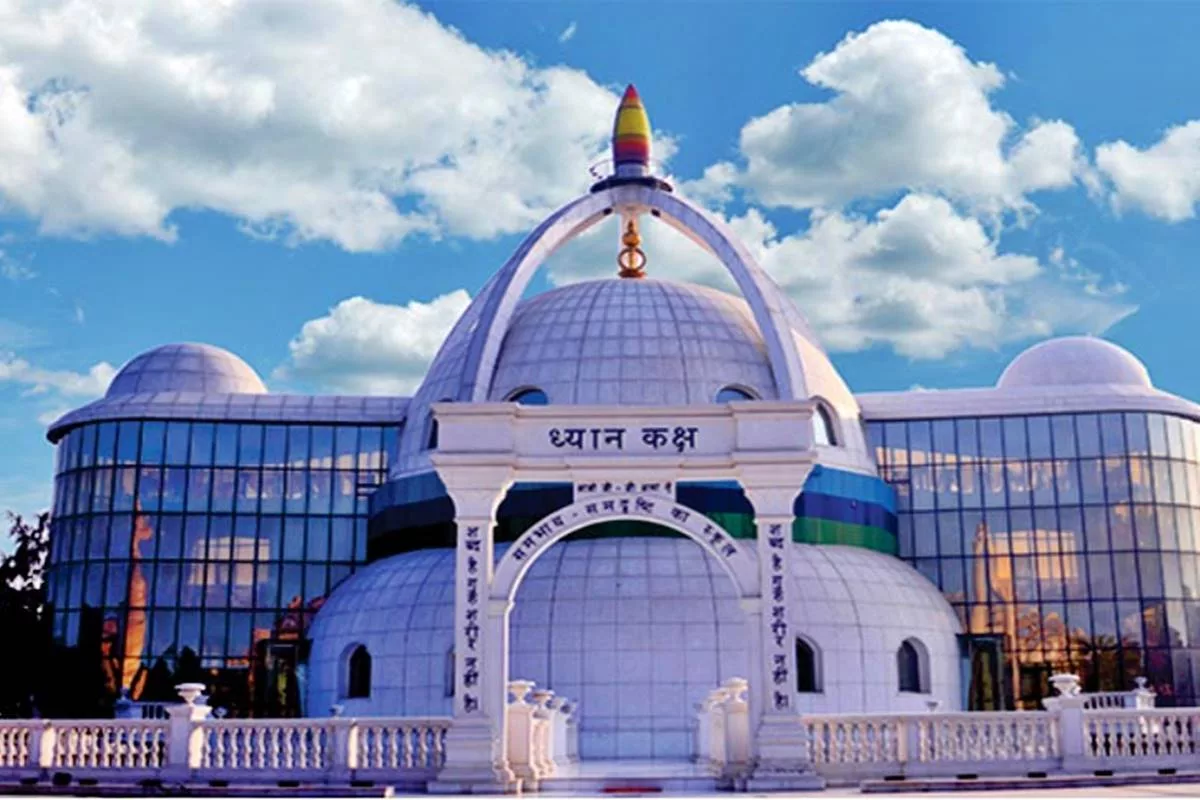Image Source: Haryana Tourism
Tucked away along the tranquil Bopani Lalpur Road in Greater Faridabad, the recently opened Dhyan Kaksh is a symbol of peace and unity. Developed by the Satyug Darshan Trust, this unique meditation centre aims to provide individuals with a tranquil environment for self-discovery and overall wellbeing. Formally opened on 26th January 2014, Dhyan Kaksh is dedicated to helping people escape the hustle and bustle of modern life and embark on a journey of inner transformation.
A vision of unity
The vision behind Dhyan Kaksh is clear: it aims to foster a sense of unity among its visitors. Volunteer Meena emphasizes that the center’s design embodies this ideal: every element, from the architectural features to the overall ambience, has been thoughtfully crafted to promote a sense of unity and serenity.
Architectural symbols
Dhyang Kaksh is more than just a meditation center; it is a thoughtfully designed space rich in symbolism. The building features a striking dome, widely recognized as a symbol of wholeness; this architectural choice reflects the center’s commitment to inclusivity and unity.
The lotus flower, revered in many cultures as a symbol of purity and spiritual growth, plays an important role in this design – visitors will notice it in the window shapes and in the intricate wall carvings, which enhance the meditative quality of the space.
Additionally, the surrounding reflecting pool serves as a tranquil oasis, inviting visitors into introspection. The calm waters not only complement the tranquil atmosphere but also embody the ideals of peace and meditation.
One of the most unique aspects of Dhyan Kaksh is its entrance, surrounded by seven gates. Each gate symbolizes an important human virtue: contentment, patience, sincerity, justice, equanimity, selflessness and benevolence. As visitors pass through these gates, they are reminded of the importance of living a virtuous life, a core principle of the center’s philosophy.
Facing controversy
Dhyan Kaksh has attracted devout followers but has not been without controversy. Critics have raised concerns about the religious symbolism of the center, pointing out that its design closely resembles Hindu and Jain temples, leading some to question whether it is too closely aligned with any particular religious affiliation.
Another contentious issue is funding for the center, which is being partly funded by the Indian government, but some have expressed concern about its impact on separation of church and state.
Accessibility is also a challenge for the center: its location and focus on meditation means that certain groups, such as people with disabilities or those unable to travel long distances, may find it difficult to benefit from the services it offers.
Despite these criticisms, Dhyan Kaksh remains a beloved destination for those seeking a deeper understanding of meditation and inner peace, its unique design and mission making it popular and resonating with a wide range of demographics.
A complicated legacy
Dhyan Kaksh is a multifaceted institution that embodies both aspiration and conflict. It represents a profound ideal: the pursuit of unity and wholeness in a divided world. Though debate continues over its design and funding, there is no doubt that the center provides a valuable resource for those seeking to cultivate inner peace.
For many, the Dhyan Kaksh journey is not just a physical passage, but a metaphorical quest for virtues that will lead to a more harmonious existence. The center continues to attract visitors from all walks of life and remains a beacon of hope for those seeking solace and spiritual growth in an increasingly chaotic world.

